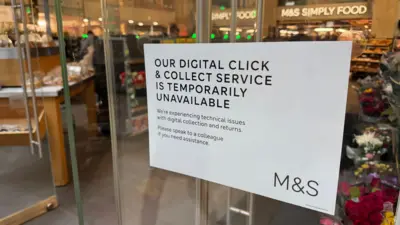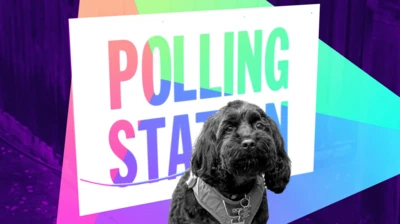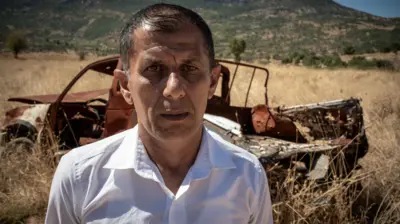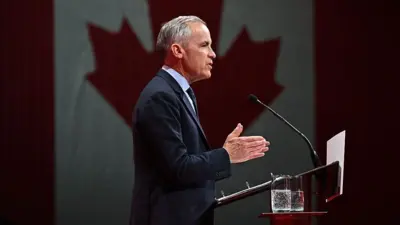Same-day mental health help pledge as demand rises
- Author, Ben Price
- Role, BBC News
Same-day mental health support without the need for a referral is the aim of a new strategy after calls to an urgent hotline doubled in a year.
A free NHS urgent mental health support phone line which launched in late 2022 gets an average of 6,000 calls each month, while the overall number of calls almost doubled between 2023 and 2024.
The Welsh government's 10-year plan will focus on early intervention without delay and more social prescribing which connects people to community based activities.
Minister for Health and Wellbeing Sarah Murphy said the Welsh government was working to address factors that affect wellbeing.
Analysis from health think tank the Bevan Commission found the number of people with mental health issues could increase by a third over the next 20 years.
Long waiting times to access specialist support, especially for children and young people were highlighted during a recent consultation, which also found that those from certain economic or ethnic minority backgrounds were disadvantaged.
Simon Jones, head of policy at Mind Cymru, said: "Whilst the direction of travel is what we wanted to see, there must now be clear and consistent leadership to deliver on these commitments with urgency and long-term funding."
Under the plan, support would be given over the phone, at a GP surgery or local mental health service, who would then find appropriate help.
That could involve social prescribing, where suitable activities in the community are recommended to avoid crises and preventative care.
Sian McEvoy, 41, spends a few days a week volunteering at a community farm near her home in Swansea, which provides opportunities for adults and young people who face mental health challenges.
The experience of being outdoors and working with animals has already started to improve her social anxiety which prevented her from finding employment.
She said: "I got myself into a bit of trouble drinking.
"I came out of detox in February and I wanted to get myself back into the community again because my anxiety around people isn't great, so I thought coming here with the animals would be good for me.
"When I was drinking I didn't leave the house for three years so being out in the community around other people would tear me apart.
"I decided to come here to improve my mental health and get my confidence up to go back working full-time."
The farm's operations manager, Katharine Aylett, said: "Most people self-refer but some come here through their occupational therapist, or a social prescriber in a GP surgery and we have local area co-ordinators who refer people.
"We've seen a huge differences in people. So many tell us about how it's changed their relationships with their families."
Ms Aylett noted there were still challenges within the sector due to the lack of long-term funding for projects that can support wellbeing.
Since becoming a volunteer at the farm, Steffan Thomas, 24, said the experience had made a "huge impact on my mental health".
He said: "If I miss a week I feel a bit sad because I want to be here as much as I can.
"If I need five minutes to myself I like to spend time with just the animals but I tend to like getting stuck in and helping others with their mental health."
Since it launched at the end of 2022, the NHS Wales 111 "press two" mental health urgent support line has recorded an average of 5,969 calls each month.
Prof Kamila Hawthorne who is a GP in Mountain Ash, Rhondda Cynon Taf, and a Bevan Commission commissioner, said: "We know that chronic ill health is rising, both mental and physical.
"If we don't do something to prevent the onward rise of prevalence then the NHS is going to be overwhelmed.
"It's much better to prevent these things in the first place, enable people to grow up leading healthier lifestyles, having healthier approaches to what they want out of life and how they want to lead their day to day activities.
"I don't think people have really appreciated the power of social prescribing and how good it is to be able to help yourself and have the tools to prevent relapses later on."
Murphy said: "When you go in and ask for help, you'll see somebody almost immediately to have that conversation and not be put on a waiting list for counselling. We're already seeing this in pockets and we need to build on that.
"You want always have perfect physical health or perfect mental health but we're reducing that stigma and ensuring we have more compassionate and person-centred care exactly when people need it.
"We know that good mental health depends on much more than healthcare alone.
"That's why we're working to address all the factors that affect wellbeing, from housing and employment to tackling loneliness and building stronger communities."
Top Stories
More to explore
Popular Reads
Content is not available








